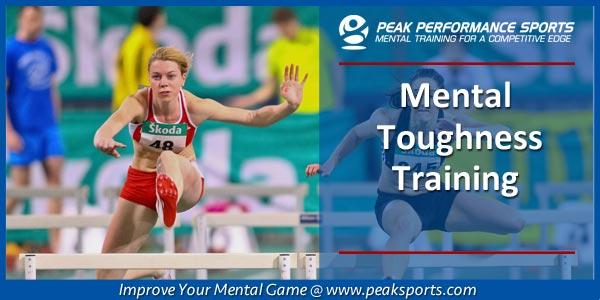
Self-Control And Persistence
Why do some athletes consistently fall short of their goals? Are you frustrated because you just can’t seem to get over the hump and achieve the level of success that you desire?
Many athletes start pre-season full of vim and vigor… You have certain objectives you want to meet…
You believe this is the year you will break out… You feel a renewed sense of enthusiasm and motivation…
Then something happens… You hit a snag… maybe you are not chosen as a starter… or a nagging injury reappears… or early performances in the competitive season are not up to par…
Suddenly, you feel deflated, like someone sucked out all your motivation and energy…
You conclude that what you wanted was not possible in the first place.
But what really happened? You didn’t lose any athletic ability, so the problem is not physical.
The issue is mental toughness.
While you were spending time preparing physically for the season, you did not allocate any resources to train yourself mentally.
The challenge with athletic performance is that it requires physical and mental development and most athletes neglect developing the mental toughness that gets them over the hump when snags occur.
Mental toughness keeps you going when the going gets tough. There is no doubt the road to success is rocky with plenty of obstacles.
Mental toughness may be the most important ingredient for athletic goal achievement.
If you want to succeed as an athlete, you better be mentally tough enough to handle long hours of training, injuries, losses, mistakes and all those other things that will pop up between you and your goal.
Just like you can get physically stronger, you can get mentally tougher.
You only get good at things you do repeatedly. If you want to get physically stronger, then you need lift weights regularly… If you want to get faster, you need to speed train more often… If you want to get mentally tougher, you need to dedicate time and effort to training mental toughness.
2 Key Characteristics of Mental Toughness
- Self-Control – The ability to control your impulses, emotions, and behaviors to push forward in the right direction in order to achieve your goals. Self-control is that thing that makes you go practice when you feel like hanging out with your friends. Self-control helps overcome the temptation of slacking off or going through the motions even after a bad performance.
- Persistence – The ability to stay motivated and focused despite obstacles. Persistence is what bridges the gap between goal and its achievement. Persistence is “keeping your eyes on the prize” when things are not going as planned.
Mental Toughness in Action
Daphne Schippers ran the third-fastest 200m women’s time of all time at the 2015 World Championships. Schippers set a world championship record time of 21.63 seconds to take her first gold medal at the world games.
Schippers’ mental toughness is evident in the path she took to achieve her World Championship gold medal. Schippers was one of the top competitors in the world in the heptathlon. After suffering a knee injury, Schippers decided to concentrate on sprinting earlier this year.
In the 100m race at the World Championship, Schippers narrowly lost to earn the silver medal. After the 100m race, Schippers was not devastated from losing but reassured of her chances to win the 200m race, “I see now that nothing is impossible.”
Four days later, Schippers, surged forward in the last meter to claim the 200 meters crown in one of the fastest fields in track history. In fact, Schippers pushed so hard at the end of the race that she was dizzy and needed medical attention.
Schippers was so mentally tough that she overcame injury, a change in events, a different training method, a loss in the 100m race, and physical exhaustion to become a world champion.
Now that’s mental toughness!
Tip for amping up your mental toughness training:
Set aside 5-10 minutes each training session and determine how you will challenge yourself in that practice and how you will meet that challenge. By moving towards challenges, you will develop the self-control and persistence to become mentally tougher!
Check out our video of the week, How To Manage Perfectionism In Athletes
Related Sports Psychology Articles
- Mental Toughness as an Underdog
- Mental Toughness Tips for Athletes
- The Importance of Mental Toughness
*Subscribe to The Sports Psychology Podcast on iTunes
*Subscribe to The Sports Psychology Podcast on Spotify
Download a free sports psychology report to improve your mental game!
Learn more about our one-on-one mental game coaching.
The Focused Athlete

It’s probably no secret that you have many opportunities to become distracted in sports. Athletes are bombarded with both internal and external distractions everyday in practice and competition. Focused athletes are able to get the most from their skills because they are more efficient with practice and more concentrated in competition. Athletes who lack focus let distractions run wild through their mind and don’t know how to adjust or refocus.
The Focused Athlete was developed for any level coach, parent, or junior to professional athlete who wants to improve performance and gain a competitive edge. It does not matter if you are a fledgling junior athlete; or a seasoned professional, plagued with distractions; or you just wanting to learn how to improve concentration…
“The Focused Athlete” is a complete system to teach you how to focus like a champion and harness the power of a zone focus every time you step on the playing field, court, track, or course in practice and games!
